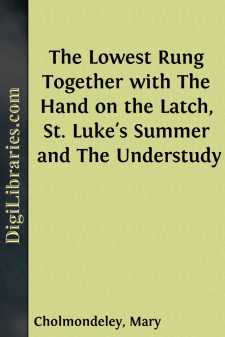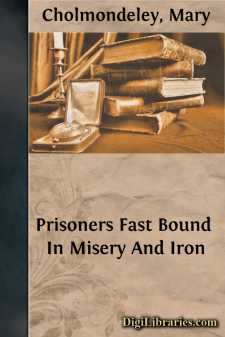Categories
- Antiques & Collectibles 13
- Architecture 36
- Art 48
- Bibles 22
- Biography & Autobiography 813
- Body, Mind & Spirit 142
- Business & Economics 28
- Children's Books 15
- Children's Fiction 12
- Computers 4
- Cooking 94
- Crafts & Hobbies 4
- Drama 346
- Education 46
- Family & Relationships 57
- Fiction 11828
- Games 19
- Gardening 17
- Health & Fitness 34
- History 1377
- House & Home 1
- Humor 147
- Juvenile Fiction 1873
- Juvenile Nonfiction 202
- Language Arts & Disciplines 88
- Law 16
- Literary Collections 686
- Literary Criticism 179
- Mathematics 13
- Medical 41
- Music 40
- Nature 179
- Non-Classifiable 1768
- Performing Arts 7
- Periodicals 1453
- Philosophy 64
- Photography 2
- Poetry 896
- Political Science 203
- Psychology 42
- Reference 154
- Religion 513
- Science 126
- Self-Help 84
- Social Science 81
- Sports & Recreation 34
- Study Aids 3
- Technology & Engineering 59
- Transportation 23
- Travel 463
- True Crime 29
The Lowest Rung Together with The Hand on the Latch, St. Luke's Summer and The Understudy
Categories:
Description:
Excerpt
PREFACE
I have been writing books for five-and-twenty years, novels of which I believe myself to be the author, in spite of the fact that I have been assured over and over again that they are not my own work. When I have on several occasions ventured to claim them, I have seldom been believed, which seems the more odd as, when others have claimed them, they have been believed at once. Before I put my name to them they were invariably considered to be, and reviewed as, the work of a man; and for years after I had put my name to them various men have been mentioned to me as the real author.
I remember once, when I was very young and shy, how at one of my first London dinner-parties a charming elderly man discussed one of my earliest books with such appreciation that I at last remarked that I had written it myself. If I had looked for a surprised flash of delight at the fact that so much talent was palpitating in white muslin beside him, I was doomed to be disappointed. He gravely and gently said, "I know that to be untrue," and the conversation was turned to other subjects.
One man did indeed actually announce himself to be the author of "Red Pottage," in the presence of a large number of people, including the late Mr. William Sharp, who related the occurrence to me. But the incident ended uncomfortably for the claimant, which one would have thought he might have foreseen.
But whether my books are mine or not, still whenever one of them appears the same thing happens. I am pressed to own that such-and-such a character "is taken from So-and-so." I have not yet yielded to these exhortations to confession, partly, no doubt, because it would be very awkward for me afterwards if I owned that thirty different persons were the one and only original of "So-and-so."
My character for uprightness (if I ever had one) has never survived my tacit, or in some cases emphatic, refusal to be squeezed through the "clefts of confession."
It is perhaps impossible for those who do not write fiction to form any conception how easily an erroneous idea gains credence that some one has been "put in a book"; or, if the idea has once been entertained, how impossible it is to eradicate it.
Looking back over a string of incidents of this kind in my own personal experience, covering the last five-and-twenty years, I feel doubtful whether I shall be believed if I instance some of them. They seem now, after the lapse of years, frankly incredible, and yet they were real enough to give me not a little pain at the time. It is the fashion nowadays, if one says anything about oneself, to preface it by the pontifical remark that what one writes is penned for the sake of others, to save them, to cheer them, etc., etc. This, of course, now I come to think of it, must be my reason also for my lapse into autobiography. I see now that I only do it out of tenderness for the next generation. Therefore, young writers of the future, now on the playing-fields of Eton, take notice that my heart yearns over you. If, later on, you are harrowed as I have been harrowed, remember
J'ai passé par là.
Observe the prints of my goloshes on the steep ascent, and take courage. And if you are perturbed, as I have been perturbed, let me whisper to you the exhortation of the bankrupt to the terrestrial globe:
Never you mind. Roll on.
When I first took a pen into my youthful hand, I lived in a very secluded part of the Midlands, and perhaps, my little world being what it was, it was inevitable that the originals of my characters, especially the tiresome ones, should be immediately identified with the kindly neighbours within a five-mile radius of my paternal Rectory. Five miles was about the utmost our little pony could do. It was therefore obviously impossible that I could be acquainted with any one beyond that distance....





